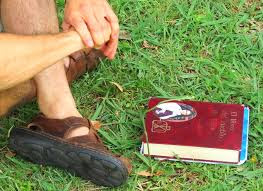El 2 de Diciembre de 1980, fueron
violadas y asesinadas tres Religiosas y una Misionera Laica norteamericanas:
Ita Ford, Maura Clarke, Dorothy Kazel, Jean Donovan. Las cuatro fueron
detenidas por miembros de la Guardia Nacional, los mismos que perpetraron este
crimen, al abandonar el Aeropuerto Internacional de Comalapa. Las Religiosas,
así como la Laica, pertenecían a las Congregaciones de Maryknoll y Ursulinas.
Habían llegado a El Salvador por invitación del Beato Oscar Arnulfo Romero.
Ellas trabajaban en los lugares más pobres defendiendo a los salvadoreños del
terror desatado por su Gobierno. En mayo de 1984, Luis Antonio Colindres
Alemán, Daniel Canales Ramírez, José Roberto Canjura, Carlos Joaquín
Contreras, Francisco Orlando Contreras, fueron condenados a 30 años de
prisión; sin embargo, los autores intelectuales de esta tragedia permanecen
aún en libertad por estar amparados por una Ley de Amnistía.
La Guerra Civil que sufrió El
Salvador en la década de 1980, dejó una huella de destrucción y muerte
imposible de superarse hasta hoy día, y muchos de los familiares de miles de víctimas
civiles aún continúan clamando justicia. El asesinato de las tres Religiosas
y la Misionera Laica, es uno de los casos, que si bien es cierto, fue
investigado y plasmado en el Informe de la Comisión de la Verdad de Naciones
Unidas, éste continúa todavía en la impunidad. A 35 años de aquél horrendo
crimen la situación en El Salvador no ha mejorado mucho.
“Vino la palabra de Dios en el
desierto sobre Juan, hijo de Zacarías. Entonces comenzó a recorrer toda la
comarca del Jordán predicando un bautismo de penitencia para el perdón de los
pecados, como está escrito en el libro de las predicciones del profeta
Isaías: “Ha resonado una voz en el desierto: preparen el camino del Señor,
hagan rectos sus senderos. Todo valle será rellenado, toda montaña y colina,
rebajada; lo tortuoso se hará derecho, los caminos ásperos serán allanados y
todos los hombres verán la salvación de Dios” (Lc 3, 3-6).
Las Religiosas Ita Ford, Maura
Clarke, Dorothy Kazel, y Jean Donovan, decidieron permanecer con los más
pobres y perseguidos en El Salvador, en uno de los peores momentos históricos
de este país. Fueron asesinadas, como San Juan Bautista, por proclamar con sus
propias vidas la necesidad de transformar el odio, la violencia y la injusticia
que vivía aquella sociedad, por el amor a Dios y al prójimo. La sangre de
estas cuatro mártires norteamericanas constituye un grito a todos nosotros
cristianos a salir de la comodidad de nuestras vidas, a arriesgar nuestra
existencia en la búsqueda constante por ayudar a las personas más necesitadas
que nos rodean.
¿Cuál es para usted el mensaje de Ita Ford, Maura Clarke,
Dorothy Kazel, y Jean Donovan? ¿Sabe algo de estas cuatro mujeres?
On December 2, 1980 Sister Dorothy Kazel, Sister Maura
Clarke, Sister Ita Ford and American Lay missionary Jean Donovan, were beaten,
raped, and murdered by members of the National Guard of El Salvador. The
National Guardsmen stopped the women's vehicle after they left the
International Airport in San Salvador. Sister Dorothy Kazel was a member of the
Ursuline order while Sister Maura Clarke, Sister Ita Ford and Lay missionary
Jean Donovan belonged to the Maryknoll order. They all arrived in El Salvador by
invitation from Blessed Oscar Arnulfo Romero. They worked with the poor and war
victims defending Salvadorans from the terror instilled by their government. In
May 1984, Daniel Canales Ramirez, Carlos Joaquin Contreras Palacios, Francisco
Orlando Contreras Recinos, and Jose Roberto Moreno Canjura were sentenced to 30
years in prison, their superior Luis Antonio Colindres Aleman, was also found
guilty of that crime. Unfortunately the evil masterminds who gave the orders to
commit this horrible crime are still free and protected by an Amnesty Law.
The Civil War that El Salvador suffered in the 1980’s
left a trail of death and destruction that still cannot be overcome today. As a
result, many of the thousands of families of these victims continue to cry out
for justice. The murder of the three nuns and Lay missionary is one of the
cases that, although true, was investigated and reflected in the Report of the
United Nations Commission on the Truth for El Salvador. Thirty five years after
that heinous crime the situation in El Salvador has not improved much.
“The word of God came to John the son of Zechariah in
the desert. He went throughout [the] whole region of the Jordan, proclaiming a
baptism of repentance for the forgiveness of sins, as it is written in the book
of the word of the prophet Isaiah: ‘A voice of one crying out in the desert;
‘Prepare the way of the Lord, make straight his paths. Every valley shall be
filled and every mountain and hill shall be made low. The winding road shall be
made straight, and the rough ways made smooth, and all flesh shall see the
salvation of God’“ (Luke 3:2-6).
Sisters Dorothy Kazel, Maura Clarke, Ita Ford, and
American Lay missionary Jean Donovan decided to aid the poor and refugees of
the Salvadoran Civil War in one of the worst moments in the history of that
country. They were murdered, like Saint John the Baptist, for proclaiming with
their own lives the need to transform the hate, violence, and injustice that
society lived for love of God and of thy neighbor. The blood of these four
North American martyrs is a cry to all Christians to leave the comfort of our
lives and risk our existence to aid the poorest people that surround us.
What is the message you take from Ita Ford, Maura
Clarke, Dorothy Kazel, and Jean Donovan?
Fr. Marco Lopez









